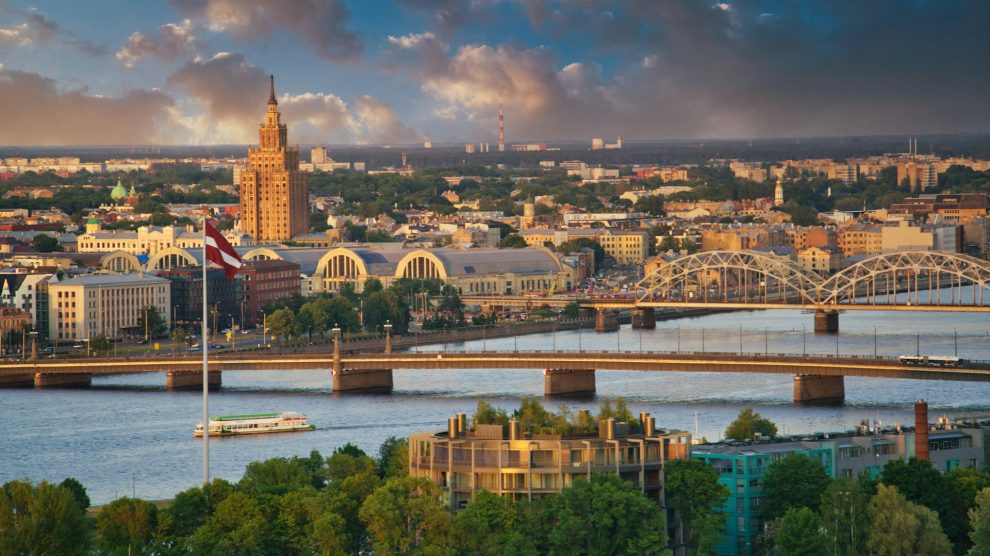Facing challenges including brain drain and regional disparities, Latvia must lean into innovation and green growth to fuel its economic recovery and address demographic shifts.
A small yet open economy, Latvia, with its emphasis on service diversity, technological innovation, and green growth, presents a model of resilience and adaptability—not least in the impressive way it gradually recovered from the economic crisis of the late 2000s (its GDP decreased 25 per cent between the fourth quarter of 2007 and the third quarter of 2009).
While GDP contracted in 2023 by 0.6 per cent, the European Commission expects the country to return to growth in 2024, at the modest rate of 1.7 per cent, before growth accelerates to 2.7 per cent in 2025. Key to this will be keeping inflation (9.1 per cent for the full year 2023) under control. The European Commission has forecast inflation of 2.2 per cent for this year, mainly as a result of lower energy prices and a deceleration in wage increases.
Latvia’s Economics Ministry is more optimistic about growth—it suggests that a GDP increase of between two and three per cent is possible, “assuming no significant worsening of external conditions”.
- ‘Venture capital in the Baltics is finally emerging as an asset class’
- The Latvian on-demand CPG start-up supplementing the creator economy
- How accurate is the West’s current assessment of Moscow’s intentions?
Nevertheless, Economy Minister Viktors Valainis said earlier this year that Latvia is at a “crucial moment” when, in the phase of persistently low growth in external markets, the main stimulus for the economy must come from the state.
“It is our responsibility to quickly channel EU funding into circulation, reduce bureaucracy, alleviate administrative burdens on investments, and address the issue of financial accessibility for business development,” he said. “I am confident that by fulfilling these three conditions, Latvia has the prospect of returning to solid GDP growth in the near future.”
Construction, influenced by both EU funds and public procurement; trade, and manufacturing— primarily driven by an improvement in export opportunities, are expected to see the highest rates of growth of this year, alongside the retail sector which will be positively affected by growth in private consumption.
Latvia has been proactive in embracing digital transformation, a move that has paid dividends in terms of efficiency and accessibility of services. The country’s digital agenda, focusing on e-governance and digital literacy, has not only improved public services but has also made Latvia an attractive destination for tech start-ups and investment.
The country ranked fourth in Emerging Europe’s latest IT Competitiveness Index, behind only its Baltic peers Estonia and Lithuania, and Poland.
This digital shift is not confined to the tech industry alone but is also seen in traditional sectors—such as wood processing (52 per cent of Latvia’s territory is forest)—where technology is being leveraged to enhance productivity and competitiveness.
Brain drain
A critical challenge for Latvia is brain drain, as qualified workers emigrate to other EU countries. Over the next three decades, Latvia, having already shed nearly 30 per cent of its population since 1990, is set to lose 23.5 per cent more by 2050, according to estimates published last year by the population division of the United Nations Department of Economic and Social Affairs. Neighbouring Lithuania faces a similar problem.
To slow migration, the Organisation for Economic Co-operation and Development (OECD), a club of mostly rich countries, has recommended that Latvia provide tertiary students with greater financial support and improve access to, and the quality of, training (including by establishing training funds).
It also suggests raising skilled migration, which would require simplifying and accelerating administrative procedures including the recognition of foreign qualifications. Improving the supply of more affordable and better-quality housing and upgrading public transport services would help to spur labour mobility. Addressing gender stereotypes and enforcing anti-discrimination legislation meanwhile is key to reducing the growing gender wage gap.
However, these challenges also present opportunities. For instance, the demographic shift necessitates a focus on automation and artificial intelligence (AI), fields in which Latvia has the potential to excel. Similarly, the need for enhanced research and development capabilities opens avenues for collaboration with international partners and investment in higher education and training programmes.
Riga takes all
Latvia also has another problem—uneven development centred on the capital, Riga. Latvia is one of the EU’s most territorially centralised countries; socio-economic life is concentrated around the Riga metropolitan area, which has about 850,000 residents (the country’s total population is 1.83 million people).
Riga and the area around it generate up to 69 per cent of Latvia’s GDP. In practice, this means that the state is clearly divided into a strong centre, concentrated within a small area, and the extensive peripheries. Living standards in and around Riga are similar to those seen in the capital regions of the country’s Baltic neighbours. However, the gap between it and the rest of the country is much more noticeable than in Lithuania and Estonia, says Bartosz Chmielewski of the Centre for Eastern Studies in an eye-opening paper looking at Latvia’s uneven development.
Unless addressed, Chmielewski warns, the development gap between the centre and the periphery will continue to widen, increasing the social and economic disparities between Latvia and the other Baltic states. “It is already obvious that Latvia is falling behind its neighbours,” Chmielewski writes.
To prevent falling further behind and to realise its full potential, Latvia must address its Riga problem, its demographic challenges, further diversify its economy, and invest in human capital. It certainly has the know-how to do so.
Photo by Raimond Klavins on Unsplash.
Unlike many news and information platforms, Emerging Europe is free to read, and always will be. There is no paywall here. We are independent, not affiliated with nor representing any political party or business organisation. We want the very best for emerging Europe, nothing more, nothing less. Your support will help us continue to spread the word about this amazing region.
You can contribute here. Thank you.







Add Comment